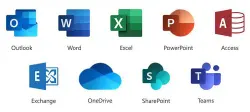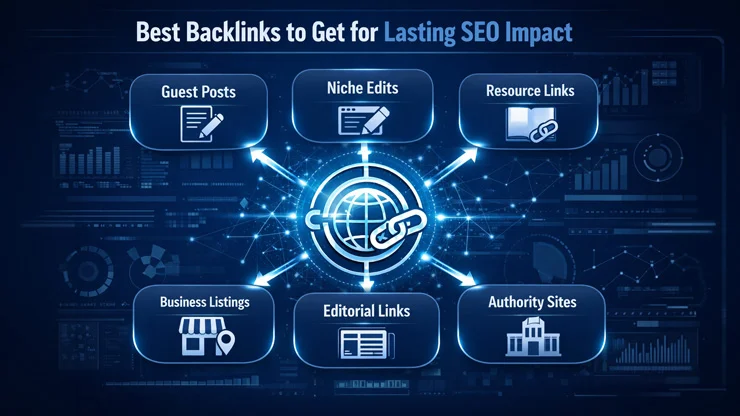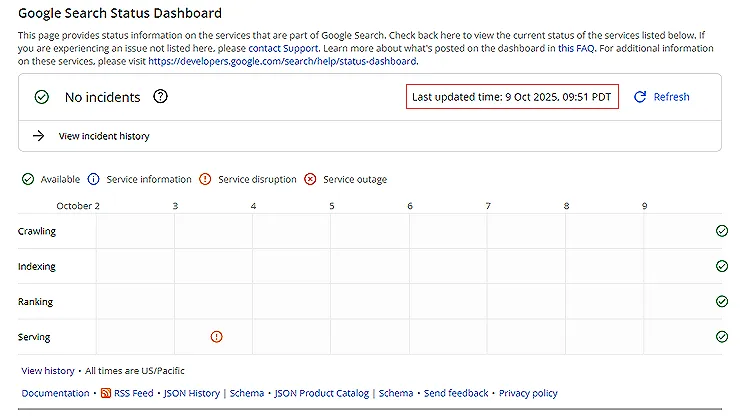Clearing Up SEO Misconceptions for 2025
In the evolving world of digital marketing, search engine optimization (SEO) remains vital despite frequent misconceptions suggesting otherwise. As we delve into 2025, many businesses and individuals find themselves trapped by outdated beliefs about SEO that waste valuable time and resources. Addressing these myths is crucial for leveraging SEO effectively to boost organic traffic and online visibility.
John Ramos, a seasoned expert with over 25 years of SEO experience, serves as the SEO Specialist at INTELLIPLANS., aims to equip businesses with the knowledge to navigate SEO challenges successfully. Through his experience, John has identified and debunked ten persistent myths that are hindering SEO success today. His insights reveal that not only is SEO alive and well, but it is also an ever-evolving landscape that requires strategic understanding and application.
To maximize the potential of SEO in 2025, it’s essential to distinguish between myths and facts. This article will explore each myth in detail, backed by expert analysis and data, helping you focus on strategies that genuinely deliver results. Whether you’re an SEO novice or a seasoned professional, understanding these misconceptions will better position you for online success.
SEO Myth #1: SEO is Dead
Despite persistent rumors, SEO is far from a dying practice. The misconception that SEO is obsolete largely stems from evolving digital landscapes, yet the data tells a different story. According to research by SparkToro, Google searches have grown by an impressive 21% over the past year alone. Google remains the dominant force in search engines, commanding 93% of the global search market.
Source: StatCounter Global Stats – Search Engine Market Share
To provide context, consider the comparison between Google and ChatGPT, a popular AI tool. While ChatGPT sees around 37 million searches daily, Google boasts an astonishing 14 billion, marking it as 373 times more utilized than its AI counterpart. Clearly, the notion that SEO is irrelevant doesn’t hold water when we observe its substantial, ongoing impact on digital interactions.
However, SEO isn’t without its challenges. For instance, organic click-through rates (CTR) have seen a decline due to AI overviews. Remarkably, studies have proven that when AI summaries are present, CTR can plunge by 70%. Additionally, a staggering 60% of all Google searches conclude without a single click. While these trends indicate that the digital landscape is shifting, they make a compelling case for the continued importance of a well-rounded SEO strategy that adapts to these changes.
SEO Myth #2: More Content Equals Better Results
In the realm of SEO, there’s a pervasive belief that more content automatically equates to greater success. This misconception is prevalent among businesses aiming to increase website rankings through sheer volume. However, as the SEO landscape becomes more sophisticated, quality triumphs over quantity.
Statistics from Ahrefs reveal that over 97% of web pages receive zero organic traffic from Google. This staggering figure underscores the truth that prolific content creation alone isn’t the solution. Such efforts often result in poorly executed topical authority strategies that fail to drive meaningful engagement or results. Businesses attempting to game the system by inundating the web with content often end up with a digital presence that’s redundant and ineffective.
An exemplary challenge to this myth is the performance of sites like Backlinko, which successfully generate around 300,000 monthly organic visits despite having only 557 published pages since 2013. This data, equating to around 3.5 pages per month, exemplifies that effective SEO success hinges on content that is not only relevant but also deeply authoritative and well-executed, aligning quality with the user’s intent.
SEO Myth #3: Consistent Publishing Ensures Success
Many businesses and content creators cling to tightly structured publishing schedules, believing that consistent output in terms of timing boosts their SEO performance. This myth is rooted in the desire for predictability in results, yet it fails to recognize what truly impacts Google’s updates and algorithms.
Google doesn’t prioritize your editorial calendar as much as it prioritizes the quality of your content. Whether you publish every Tuesday at 9 AM or sporadically throughout the month, the real factor for success is how well the content aligns with search intent and the quality it provides to readers. Like revered filmmaker Christopher Nolan, whose work is lauded and anticipated despite long gaps between releases, content must make a significant impact.
Consistency for the sake of consistency is akin to tossing pebbles into an ocean with no noteworthy effect. In the realm of SEO, it’s about making monumental, intent-driven splashes with fewer, high-impact publications rather than numerous forgettable offerings. By focusing on what truly resonates with searchers, businesses can create lasting impressions that move needles in SEO rankings.
SEO Myth #4: Keywords Are Obsolete
The myth that keywords have lost their relevance in SEO strategy is deeply misguided. While the blanket approach of ‘spray and pray‘—targeting random high-volume keywords without context—has fallen out of favor, cultivating a thoughtful keyword strategy remains crucial. Understanding how and why users search is central to this.
A strategic start involves identifying your core offering and translating it into a broad topic that aligns with user journeys. For instance, a business offering a content optimization tool might use ‘content optimization‘ as its seed topic to build a comprehensive keyword strategy. This process ensures that content is continually aligned with user intent across various stages of the awareness journey, from discovery to purchase.
Focusing on keywords should start at the funnel’s bottom—those attracting users with high purchasing intent—and gradually expand to broader searches. Staying laser-focused on revenue-generating keywords ensures competitive edge and optimizes SEO efforts for conversion, not merely visibility. This approach transforms keywords from a mere ranking pursuit to an integral part of user-focused strategy.
SEO Myth #5: Keyword Density Determines Ranking
The belief that keyword density directly impacts page ranking is a persistent myth that often leads to misaligned strategies. This outdated notion has been debunked by numerous studies, including an analysis conducted by John’s team, finding no consistent link between keyword density and successful rankings.
Instead of fixating on specific keyword frequencies, effective SEO practices focus on comprehensive topic coverage. This involves creating content that fully addresses a topic and its nuances rather than merely hitting a keyword quota. Google’s algorithms have evolved to value content quality and relevancy over repetitive keyword placement.
Moreover, introducing diversified topics and leveraging innovative ideas—what’s termed as ‘information gain’—can make content more impactful. By offering fresh, unique insights or data that rival web pages might lack, content creators can achieve higher rankings. This strategy moves beyond superficial keyword filling towards meaningful, educational content that aligns with both audience needs and search engine criteria.
SEO Myth #6: Backlinks Are No Longer Relevant
The assertion that backlinks have lost their importance in SEO is notably inaccurate. Despite ongoing debates, studies by revered institutions like Backlinko, Semrush, and Ahrefs have consistently confirmed the significance of backlinks in influencing search engine rankings.
Data show a strong correlation between a site’s link authority and its ranking on search engine results pages (SERPs). In a highly competitive digital environment, more backlinks often correlate with improved visibility and traffic. Ignoring the power of backlinks is a missed opportunity to enhance organic traffic and achieve superior search rankings.
A strategic digital PR approach, where editorial backlinks are secured on high-authority and trustworthy sites, can significantly augment SEO efforts. Unlike low-quality sites like spammy press releases, authoritative backlinks lend credibility and trust in the eyes of search engines, reinforcing brand reliability and improving rank.”
SEO Myth #7: SEO is Solely for Google
Believing that SEO should target only Google is a limited approach. While Google indeed dominates with 93% of global searches, putting all efforts into a single platform is risky. With crowded markets and evolving features, diversifying strategies ensures a more robust digital presence.
Today, modern SERPs (Search Engine Results Pages) feature a variety of content formats—AI overviews, video packs, suggested snippets, and more—making it essential to occupy as much SERP real estate as possible. Instead of just aiming for a top spot with a single page, efforts should be made to capture diverse opportunities across different search formats.
Balancing efforts across Google while integrating strategies for other platforms can yield better results. Exploring SEO efforts beyond Google, like optimizing YouTube videos and engaging with other search engines, can safeguard against overreliance and broaden audience reach. Such diversification fosters resilience in the ever-changing digital ecosystem.
Leave You With This
Debunking SEO myths is not only an exercise in clarification but a pathway to implementing more robust and results-oriented strategies. 2025 presents evolving challenges and opportunities for SEO practitioners who recognize the need for adaptation. Myths, if left unchecked, can drastically misguide efforts and resources.
To thrive, businesses should prioritize strategies that hinge on quality content, informed by keyword research that follows the user journey. Equally important is acknowledging the continued relevance of backlinks and brand signals that foster trust and authenticity in Google’s eyes.
Remember, SEO in 2025 isn’t dead; rather, it continuously evolves, demanding informed and adaptable approaches. Strategic diversification, combined with insightful SEO practices, will inevitably lead to success. By understanding and countering these myths, marketers position themselves optimally to harness the full potential of organic search.
Today it’s not about ‘get the traffic, it’s about ‘get the targeted and relevant traffic.’
Here are 5 keys that listeners will learn from this article:
1️⃣ SEO is Not Dead: Despite ominous whispers, SEO continues to be a powerhouse for organic traffic.
2️⃣ Quality Over Quantity: Discover why churning out tons of content won’t win the SEO race, but deep, relevant content will.
3️⃣ Backlinks Matter: Learn that backlinks are crucial to your SEO strategy, debunking the misleading myth that they’re obsolete.
4️⃣ Beyond Google: While Google is dominant, diversifying your SEO efforts remains key, so you’re not playing a risky game.
5️⃣ Brand Signals Count: Understand the importance of brand signals in modern SEO, ensuring all efforts are genuinely credible.










